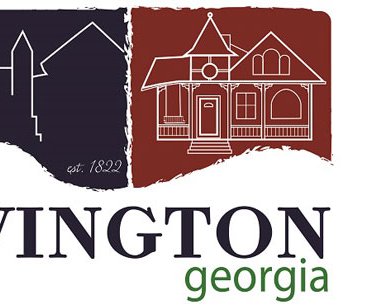Born into a Fayetteville farming community in 1924, Lofton Lee Hill helped harvest cotton and corn until joining the CCC (civilian conservation corps) during the Great Depression. He helped complete the paratrooper jump school at Fort Benning, on Nov 11, 1941. Hill said, "Little did I know I'd be going through the same jump school in 1943."
On Dec 7, 1941, most of Fayetteville found out about Pearl Harbor by word-of-mouth. "We didn't have too many radios at the time," Hill said. "But we all knew America was at war."
Drafted on Feb 16, 1943, 19-year-old Hill completed basic at Camp Joseph T. Robinson, Ark. before volunteering for airborne training at Fort Benning. He said, "Jump school lasted four weeks. The first week nothing but calisthenics, the second week calisthenics and packing parachutes, the third week we packed chutes and were dropped from the tower, the fourth week I saw the inside of an airplane for the first time in my life."
The airplane was the legendary C-47 ‘Gooney Bird.' Hill made 17 jumps to qualify for his wings. Asked about his first jump, Hill said, "That C-47 rattled so badly I was glad to jump out of it, but it sure was nice when the chute opened."
He recalled the hazards. "If you didn't jump correctly, one of the shoulder straps would ‘pop' your shoulder and suck the blood right out of you. We called that a Strawberry. While floating down, sometimes you'd land on another chute in midair and actually had to ‘walk' off your buddy's chute. If you didn't your own chute would collapse. If a chute wasn't packed properly a suspension line would shoot over your chute and tighten it up into two chutes, like a big bra. We called that a Mae West. You'd pull your reserve chute so the suspension line would roll off." Asked if he enjoyed jumping, Hill said, "I was a 19-year-old kid. You bet'cha I enjoyed it."
Hill joined the 11th Airborne Division at Camp Mackall, N.C. and received his first injury. He said, "I got caught in a crosswind and was oscillating badly but my landing looked OK until the wind almost looped me over my chute. I broke my arm on that deal."
Healed and ready for combat, Hill boarded the USS President Johnson in California to sail for the Philippines. Recalling the voyage, Hill said, "Good Lord, talk about rough seas! You'd put a food tray down on a galley table, the ship would rock like a hobby horse then your tray would slide toward a wall. You'd jump up and chase the tray but it would pass you on its way back. And talk about getting seasick, we would turn green!"
En route, the 11th docked at Pearl Harbor alongside the USS Arizona. Hill said, "The big guns were still sticking up from the turrets. A boardwalk had been built to the sunken Arizona and they raised the flag over it every morning. It was a moving experience."
Hill eventually landed near the devastated but liberated capital of Manila in the Philippines. "They sent us down to Luzon for mopping up operations near an extinct volcano we called Million Dollar Mountain," he said. "The Army bypassed the Japs on the mountain so we had to deal with them."
‘Deal with them' meant enemy night attacks during an outdoor movie, being mortared, and losing friends.
"We were on patrol in a coconut grove when a mortar shell exploded and killed my best buddy Roger LaCrox. Shrapnel hit my chest, too, and I felt something cold on my neck. It was blood. Luckily, most of the shrapnel struck an ammo clip inside my bandaleer. I guess that saved my life."
Assigned to the 187th regimental anti-tank company, Hill was on duty when a group of soldiers stopped at a crossroads. "We had the 37mm gun sighted on the crossroads," Hill said. "We didn't think much about the guys at the crossroads until they started talking. They were speaking Japanese. We sort of ended their conversation."
Hill said, "We were in another coconut grove when all hell broke loose and we dove for cover. Anti-aircraft guns firing, tracers all over the place, rifle shots whizzing around, well...the war was over."
But Hill was not going home. The 11th was assigned to Okinawa to escort General Douglas MacArthur into Japan and to spearhead the occupation. Hill said, "We flew from Okinawa into Yokohama to help round up and feed the American POWs. My God, those guys were in terrible shape, nothing but skin and bones. They begged us to leave so they could ‘take care' of their Japanese captors, but of course we couldn't do that."
Hill ended his duty at Sendai, Japan as an MP. "Not much use for anti-tank guns in Sendai," he said. "We were just keeping the peace."
Peace came with a price. "I lost a lot of friends in the war," Hill said. "My brother was almost killed by a Kamikaze attack on his ship, Fayetteville lost a lot of her native sons, but all said and done, Hitler and Japan had to be stopped. We did what we had to do."
Returning home, Hill found employment with the Southern States Electrical Corporation and retired after 40 years of service. Married in 1951, the Hills will celebrate their 61st wedding anniversary this December.
Pete Mecca is a Vietnam veteran, freelance writer and columnist. You can contact him at aveteransstory@gmail.com.





